WebEase© Epilepsy Program
Emory University, Prevention Research Center
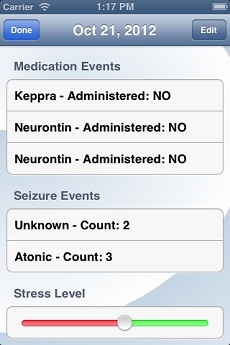
WebEase© (Epilepsy Awareness, Support, and Education) is the first-ever evidence-based online program for epilepsy self-management for adults with epilepsy. Interacting with WebEase©, users have the opportunity to learn, adjust, or reinforce self-management skills related to medication, stress and sleep management. Results from a study showed that participation in and completion of WebEase© significantly improved self-efficacy and following recommendations for medication taking, and showed trends for improvement in other self-management behaviors. Researchers are working to develop a WebEase© mobile app and adapt WebEase© into Spanish.
Emory University PRC uses the application as a prototype for future Emory mobile applications supporting self-management of other disorders.
Epilepsy affects about two million people in the United States and 50 million people worldwide. The disorder is marked by recurring seizures, which may be triggered by various factors including missed medication, poor sleep, and stress. One of the pioneers in epilepsy self-management, Dr. Colleen DiIorio (formerly an Emory University PRC researcher), along with colleagues, conducted research showing that WebEase© can improve medication adherence, stress management, and sleep quality, as well as confidence and social support, among people with epilepsy.1
WebEase© consists of a personal journal in which users track seizures, medication, and stress and sleep patterns, plus three interactive modules on medication, stress, and sleep. The modules provide pertinent information, videos that depict people with epilepsy recounting how they deal with the disorder, and strategies to help users manage their condition and set goals. Each module queries users, employing motivational interviewing techniques, about how they are managing their epilepsy and about what they might like to change or are already changing. Based upon the answers, WebEase© assesses the user’s stage of readiness to adopt healthier behaviors, gauges their confidence level to do so, and provides automated, personalized feedback.
“It’s more effective when people figure out for themselves what works for them.”
WebEase© is designed as a self-management program, rather than as a course of directives or instructions, because, Dr. DiIorio said, in general, people don’t like being told what to do. “It’s more effective when people figure out for themselves what works for them,” she said.
Many people with epilepsy cannot drive, Dr. DiIorio noted, so for them, WebEase© is more accessible than traditional group or one-on-one epilepsy management programs that require travel to a provider. And now researchers are turning WebEase© into an application that people will be able to use on smart phones and tablets, creating greater accessibility to timely feedback.
“Mobile health is going to be the next big thing in computer technology,” Dr. DiIorio said, adding that just as social media evolved as more and more people used it, so it will be with emerging health applications for mobile devices. “WebEase© is one of these early mobile health programs,” she said. “And it’s exciting to think how it will evolve as people use it and provide feedback.”
1DiIorio C, Bamps Y, Escoffery C, Reisinger-Walker E (2011). Results of a research study evaluating WebEase, an online epilepsy self-management program. Epilepsy & Behavior, 22(3): 469-474.
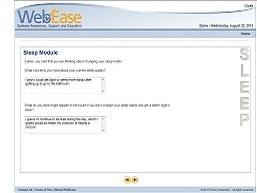
WebEase uses motivational interviewing techniques in querying users about how they manage seizure triggers.
Enlarge picture
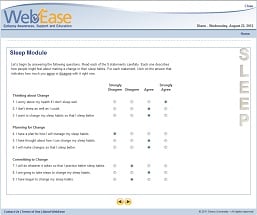
WebEase queries users to assess their readiness to make changes in how they manage their epilepsy. Enlarge picture
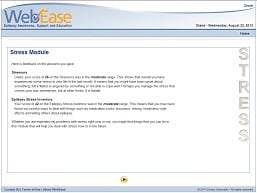
WebEase helps users understand how stress and other potential triggers might affect their epilepsy. Enlarge picture
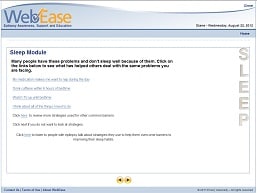
WebEase presents epilepsy management strategies based upon users’ answers to queries. Enlarge picture